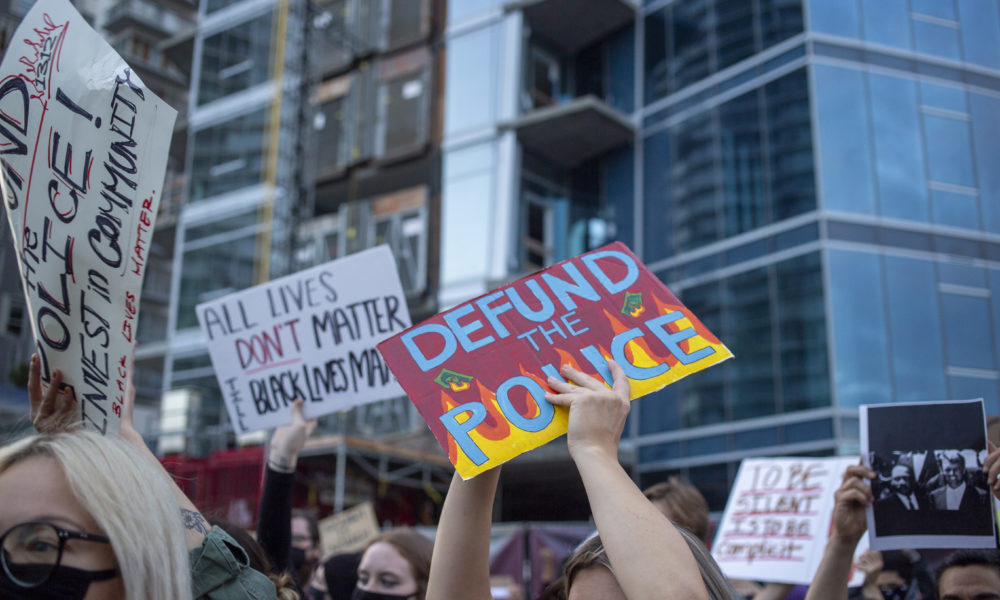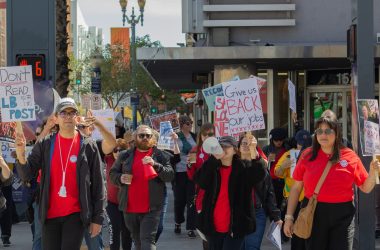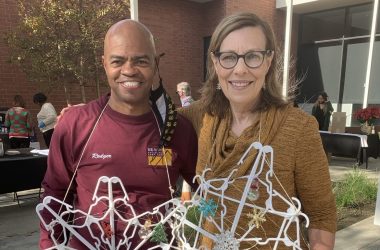A team from Long Beach State completed over 100 pages of data analysis for the Long Beach city council meeting on Aug. 11, contributing to a report that focused on racism within the community.
Presented at the meeting, the Racial Equity and Reconciliation Initiative focused on civil unrest stemming from economic and racial disparities, as well as declaring racism a public health crisis.
Led by Assistant Professor Amber Johnson, who has a doctorate in health education, three recent CSULB graduates performed qualitative data analysis on over 100 pages of audio transcripts for the report.
“It was a very heartening process because you’re hearing a lot of hurt and pain from the community,” Johnson said. “This process began because of the murder of George Floyd, and that particularly affected myself as well as my students that worked with me.”
Johnson and her team of analysts worked on the project for several months, using their research skills to highlight the issues that communities of color face and promote institutional change.
In a two-week period, they analyzed the 100 pages of data, looking to identify the community’s recommendations and specific strategies to combat the systemic issue of racial inequity.
Close to 1,600 community voices were represented by the team’s findings, with responders suggesting the city begin prioritizing areas like youth support, affordable housing and police transparency.
The group’s ultimate goal was to accurately relay the concerns of the communities facing these injustices to those in positions of power.
“The results, particularly the strategies for action presented from a community perspective, can provide our community leaders a feasible direction and means to develop action plans that can be implemented within communities,” said Yvonne Mudoh, one of data analysts on the team. “The results call for change, most importantly it states what changes are expected.”
Long Beach’s health equity officer, Katie Balderas, reached out to Johnson to perform the data analysis for the project due to her experience with bringing community discussions into action. For this assignment, Johnson assembled her research team with students who were passionate about health equity like herself.
Johnson has been working on Black health equity in Long Beach for about four years, moderating the city’s health equity sessions.
“I felt a sense of duty,” Johnson said. “We, along with other people of color, wanted to identify [the community’s] concerns…in order to make sure that the city considered the community’s voices.”
The project’s initiative to label racism as a public health crisis would allow for leaders to enact system-wide changes in favor of diversity and equity.
Josie Xing, another one of the former students on Johnson’s team, said the major concern for this project was about reallocating police department funding to instead reinvest in areas beneficial to the community, such as mental health and green spaces.
“I think this project is a very important step in helping to address issues that were put aside or way too long,” Xing said. “The results should be taken very seriously to help make Long Beach a safer and more equitable place so that the next generation can lead a life with less traumatic experiences.”
Starting with the acknowledgement of racism in Long Beach, the report detailed ways for city officials to move forward, including promoting economic opportunity, environmental justice and violence prevention.
The first step toward creating meaningful change, Mudoh said, is having the opportunity for community members to share their concerns in town hall meetings and listening sessions.
During the city council meeting, Councilmember Rex Richardson and City Manager Tim Modica voiced their support of the project.
Richardson said he hopes Long Beach will implement greater inclusion and address structural inequities affecting minority communities.
“We feel this is the biggest step forward in racial equity work in generations,” Modica said at the meeting.
As a Black person of African descent, Mudoh said the session discussions reflect the community she experiences firsthand.
“Conversations about racial equity, police brutality, educational disparities, and so forth, have been ongoing in the Black community,” she said. “The sessions hosted by the city of Long Beach was a new platform for these conversations to be had.”





Pingback: Long Beach City Council approves federal bill that includes 'Medicare for all,' stricter gun laws - Daily Forty-Niner
Pingback: Long Beach Black Health Equity team holds first town hall meeting to address health disparities - Daily Forty-Niner